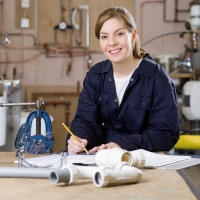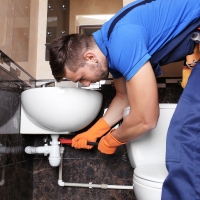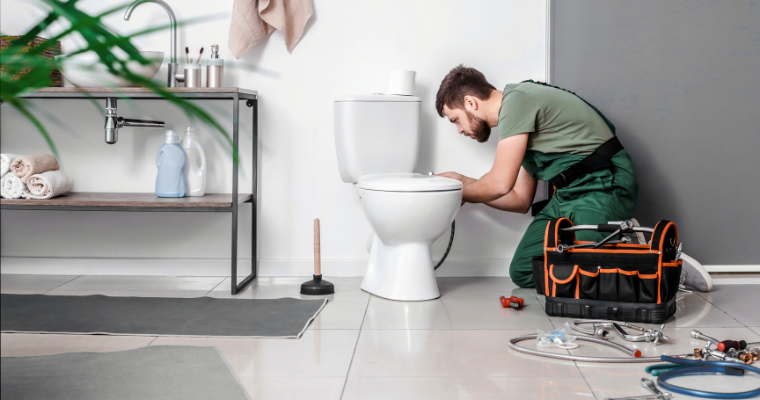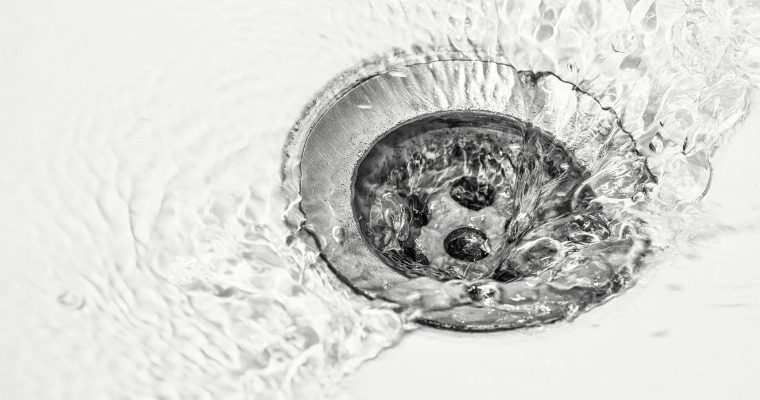Understanding how to become a plumber is essential for those considering a career in this vital trade. Whether you’re a high school student exploring career options or an adult looking for a fresh start, plumbing offers a stable, well-paying path with plenty of growth potential. This guide covers everything you need to know, from education and training to licensing and job opportunities.
Who is a Plumber?
A plumber is a skilled tradesperson specializing in installing, repairing, and maintaining piping systems that transport water, gas, and waste. They work in various settings, including residential, commercial, and industrial environments, ensuring that essential systems function correctly and safely.
What Does a Plumber Do?
Plumbers handle essential tasks that keep water, gas, and drainage systems working smoothly. Their responsibilities include:
- Installing Systems
Setting up pipes, fixtures, and appliances in homes, businesses, and industrial buildings. - Repairing Issues
Fixing leaks, clogged drains, broken pipes, and other plumbing problems. - Routine Maintenance
Checking and servicing plumbing systems to prevent future breakdowns. - Ensuring Compliance
Inspecting installations to make sure they meet safety and building code regulations.
Plumbers play a crucial role in keeping our daily lives running smoothly by maintaining safe and efficient water and drainage systems.
How to Become a Plumber
Starting a plumbing career requires following a structured path to gain the necessary skills and certifications. Here’s a step-by-step guide:
Step 1: Earn Your High School Diploma or GED
Every successful plumbing career starts with a solid education. A high school diploma or GED is the first requirement, proving that you have the basic skills needed for the trade.

Focus on key subjects like math, science, and technology. Algebra and geometry help with measuring pipes and calculating water flow, while physics explains water pressure and gravity—essential for installations and repairs. Computer-aided drafting (CAD) is also valuable, as many plumbers use it to design systems. If your school offers courses in drafting or blueprint reading, take advantage of them—they’ll give you a head start in understanding pipe layouts and construction plans.
If you’re already out of school, don’t worry. Earning a GED provides the same opportunities. The goal is simple: have the necessary credentials so you can move forward with training.
Step 2: Enroll in Vocational Training & Begin an Apprenticeship
Plumbing isn’t something you learn from books alone—you need real, hands-on experience. This is where vocational training and apprenticeships come in.
Vocational Training

Trade schools and community colleges offer plumbing programs that cover everything from pipe installation to water heater repair. These courses, lasting anywhere from a few months to two years, balance classroom learning with hands-on practice using tools like wrenches, pipe cutters, and soldering equipment.
When choosing a program, look for strong job placement rates. Some schools partner with plumbing companies, helping graduates find work. If tuition is a concern, explore financial aid and scholarship options.
Apprenticeships

An apprenticeship allows you to earn while you learn. Under the guidance of an experienced plumber, you’ll work on real projects, gradually taking on more responsibilities as your skills grow. Most apprenticeships last 4-5 years and combine on-the-job training with classroom instruction.
To find an apprenticeship, check with local trade unions like the United Association of Plumbers and Pipefitters, visit online job boards, or contact state apprenticeship offices. Be prepared to start with basic tasks like carrying tools and prepping materials, but as you gain experience, you’ll move up quickly.
| Training Option | Duration | Pros | Cons |
|---|---|---|---|
| Trade School | 6 months – 2 years | Faster entry, structured learning | Tuition costs, less hands-on experience |
| Apprenticeship | 4-5 years | Paid work, real-world experience | Longer commitment |
Both paths lead to a successful plumbing career—choose the one that best fits your timeline and budget.
Step 3: Obtain a Plumbing License
Most states require plumbers to be licensed. This certification proves your expertise and ensures you meet safety and legal standards.
The licensing process typically includes:

- Gaining Experience. Most states require 2-5 years of supervised work before allowing you to apply for a license.
- Passing an Exam. The test covers plumbing codes, safety regulations, and trade skills. Since codes vary by location, studying state-specific regulations is crucial.
- Submitting an Application. You’ll need to provide proof of experience, exam results, and pay a licensing fee (typically $100-$300).
Some states issue a “journeyworker” license after a few years, allowing you to work independently. With more experience, you can apply for a master plumber license, opening doors to higher-paying jobs and business ownership.
Step 4: Gain Real-World Experience
With training and licensing complete, you’re ready to enter the workforce. Residential plumbing is in high demand, with homeowners constantly needing repairs, upgrades, and new installations.

Start by applying to plumbing companies, both large firms and small local businesses. If you completed an apprenticeship, your mentor might hire you or recommend you to others. Job boards and trade-specific websites are also great resources.
Plumbing offers various career paths:
| Job Type | Job Description | Average Salary (Yearly) |
|---|---|---|
| Residential Plumber | Focuses on homes and apartments, handling repairs and installations. | $45,000 – $60,000 |
| Commercial Plumber | Involves larger-scale systems in offices, hospitals, and industrial buildings. | $50,000 – $70,000 |
| Apprentice (Entry-Level)/New Construction | Works with builders to install plumbing in newly constructed buildings. | $30,000 – $40,000 |
With experience and additional certifications, earnings can rise significantly, and some plumbers earn six figures.
A plumbing career offers stability, great earning potential, and opportunities for growth. Whether you choose trade school, an apprenticeship, or a combination of both, each step moves you closer to a successful and rewarding profession.
Tips for Success in Plumbing
To stand out, keep these pointers in mind:
- Stay Curious. Always learn—new tools and techniques pop up all the time.
- Be Reliable. Show up on time and do solid work. Word spreads fast.
- Talk to People. Good communication wins clients and builds trust.
- Invest in Tools. A quality wrench or pipe cutter makes your life easier.
Network with other plumbers too. Join local trade groups or online forums—they’re goldmines for advice and job leads.
Why Become a Plumber?
Choosing a career in plumbing comes with several benefits:
- On-the-Job Training
Apprenticeships let you earn while you learn, so you gain hands-on experience without student debt. - Good Income
Plumbers make competitive wages, with opportunities for overtime and career growth. - Strong Job Demand
Skilled plumbers are always needed, ensuring steady work and job security. - A Mix of STEM and Skilled Trades
Plumbing involves science, technology, engineering, and math, making it both practical and intellectually rewarding. - Environmental Impact
Plumbers help conserve water and implement eco-friendly solutions, contributing to sustainability.
If you’re looking for a stable, well-paying career with long-term growth potential, plumbing is a smart choice.
The Growth and Impact of the U.S. Plumbing Industry
According to research by GetJobber in their blog “Plumbing Industry Statistics and Trends to Know“:
- By 2029, the U.S. plumbing industry is projected to reach a market value of $158.6 billion.
- Currently, there are over 132,000 plumbing businesses in the U.S., employing approximately 736,000 workers.
- According to the U.S. Bureau of Labor Statistics, plumbers earn a median annual salary of $61,550 or $29.59 per hour.
- The plumbing job market is expected to expand by 6% by 2033, adding around 26,300 new jobs.
With steady growth, increasing job opportunities, and a strong market value, the plumbing industry remains a vital and promising sector for the future.
Can Plumbers Start Their Own Businesses?
Yes, many plumbers choose to start their own businesses after gaining sufficient experience and obtaining the necessary licenses. Entrepreneurial plumbers can establish their own companies, offering services to a broad client base and potentially increasing their earnings. Starting a plumbing business requires not only technical expertise but also business acumen, including understanding marketing, finance, and customer service.
FAQ on Plumbing Career
Key skills include problem-solving, manual dexterity, physical stamina, and strong communication abilities.
Yes, plumbers can specialize in areas such as pipefitting, steamfitting, sprinkler system installation, or working with specific systems like HVAC or gas lines.
Advancements in technology have led to the development of more efficient plumbing systems, smart fixtures, and tools that enhance diagnostic and repair processes.
Many states require licensed plumbers to complete continuing education courses to stay updated on building codes, safety regulations, and new technologies.
Plumbers can promote sustainability by installing water-efficient fixtures, repairing leaks promptly, and advocating for the use of eco-friendly materials and technologies.
A pro can usually handle it in 1-2 hours, depending on the leak’s size and location.
Many do, especially for emergencies like burst pipes—weekend gigs can pay extra!
Definitely! The field welcomes anyone with the skills and drive.
Also read: How To Cure Gum Disease Without A Dentist?
Final Thought
Becoming a professional plumber is a journey worth taking. It starts with a simple step—getting your high school diploma or GED—and builds into a career full of opportunity. You’ll train with pros, earn a license, and step into a field where your skills matter every day. How to become a plumber isn’t a mystery anymore—you’ve got the guide right here. So, grab your tools, chase your goals, and start fixing the world, one pipe at a time. Ready to make it happen?



